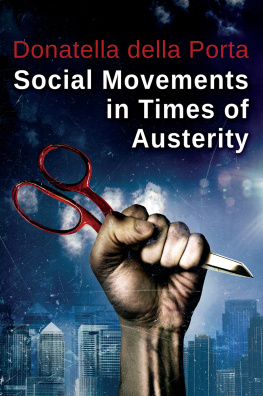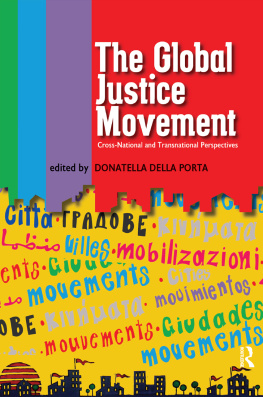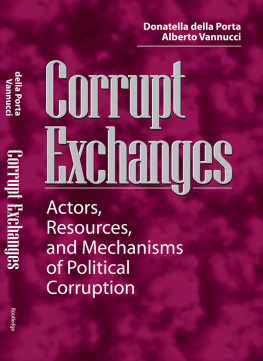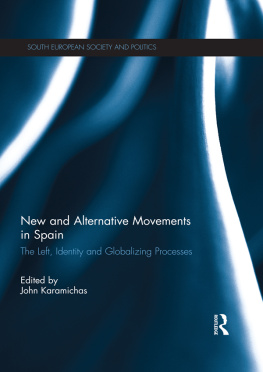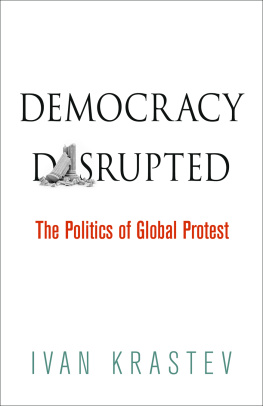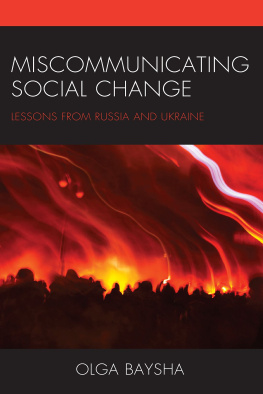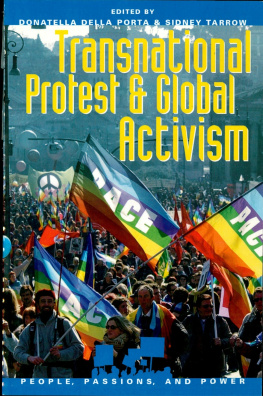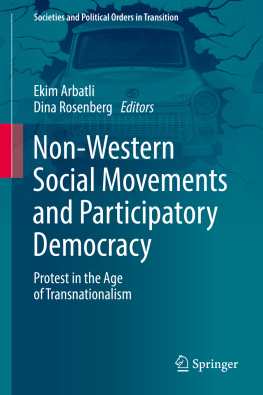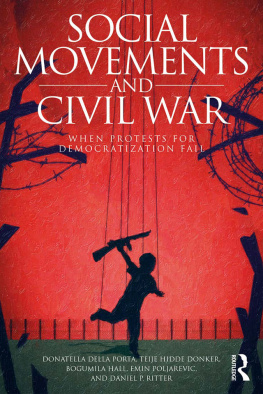
Copyright Donatella della Porta 2015
The right of Donatella della Porta to be identified as Author of this Work has been asserted in accordance with the UK Copyright, Designs and Patents Act 1988.
First published in 2015 by Polity Press
Polity Press
65 Bridge Street
Cambridge CB2 1UR, UK
Polity Press
350 Main Street
Malden, MA 02148, USA
All rights reserved. Except for the quotation of short passages for the purpose of criticism and review, no part of this publication may be reproduced, stored in a retrieval system, or transmitted, in any form or by any means, electronic, mechanical, photocopying, recording or otherwise, without the prior permission of the publisher.
ISBN-13: 978-0-7456-8858-9 (hardback)
ISBN-13: 978-0-7456-8859-6 (paperback)
ISBN-13: 978-0-7456-8862-6 (epub)
ISBN-13: 978-0-7456-8861-9 (mobi)
A catalogue record for this book is available from the British Library.
Library of Congress Cataloging-in-Publication Data
Della Porta, Donatella, 1956
Social movements in times of austerity : bringing capitalism back into protest analysis / Donatella della Porta.
pages cm
Includes bibliographical references and index.
ISBN 978-0-7456-8858-9 (hardback : alk. paper) ISBN 978-0-7456-8859-6 (pbk. : alk. paper) 1. Social movements. 2. Protest movements. 3. Democratization. I. Title.
HM881.D45 2015
303.484dc23
2014043760
The publisher has used its best endeavours to ensure that the URLs for external websites referred to in this book are correct and active at the time of going to press. However, the publisher has no responsibility for the websites and can make no guarantee that a site will remain live or that the content is or will remain appropriate.
Every effort has been made to trace all copyright holders, but if any have been inadvertently overlooked the publisher will be pleased to include any necessary credits in any subsequent reprint or edition.
For further information on Polity, visit our website: politybooks.com
Acknowledgements
This book, as many, started with some questions: How does it come about that, while capitalist transformations so clearly nowadays effect massive waves of protests, little reflection in social movement studies is devoted to the social basis for contentious politics? Why, with few exceptions, have issues of class lost relevance in research on social movements? Why is literature on political cleavage more and more focused on elections, and detached from protest?
Looking for (first) answers to those questions, I could fortunately rely on some collective resources. In the stimulating environment of the Centre on Social Movement Studies (Cosmos) at the European University Institute, a growing interest developed, especially among young scholars, for a revisitation of Marxism and post-Marxism. The impression was that some of what I had read and discussed in the 1970s in order to understand the development of capitalism had become again fashionable in the 2010s, even if filtered through much new knowledge and new ways of thinking.
Also, during the last few years, I had collected some empirical data on anti-austerity protests (and protests in times of austerity), which I found useful when addressing my questions. These came from my research project on Mobilizing for Democracy, funded through an Advanced Scholar Grant from the European Research Council; the comparative analysis of anti-corruption sponsored by the European Commission, a research project on subterranean politics, coordinated by Mary Kaldor; and the collaborative project Caught in the Act of Protest: Contextualizing Contestation based on surveys at demonstrations and coordinated by Bert Klandermans and Stefaan Walgrave with funds from ESF and the Research Council of the European University Institute. For their collaboration in these research projects, I thank especially Massimiliano Andretta, Lorenzo Bosi, Lorenzo Mosca, Herbert Reiter and Louisa Parks.
I had the chance to reflect on this empirical evidence while preparing some keynote speeches between 2012 and 2014. As the University of Bergen invited me to give the Stein Rokkan Memorial Lecture, I took the chance to revisit the most Rokkanian concept cleavage mapping the introduction to this volume. When preparing the Sdertrn Lecture, I looked then at theories and data on the social bases of recent protest, which became the basis for the second chapter. On the cultural dimension of social conflicts the topic of . For the opening lecture of the Finnish Sociological Association in Rovaniemi, I prepared the first draft of the chapter on democracy in social movements in times of austerity. I'm grateful to those friends who invited me and provided for these very stimulating occasions.
I am also indebted to the colleagues and friends who discussed various versions of those papers during lectures at the London School of Economics (Ralph Miliband Memorial Lecture), Goldsmiths, Oxford University, Cardiff University (Shapiro Memorial Lecture), University of Stockholm, University of Amsterdam (CES Presidential Round Table), University of Iceland (Opening Conference at the Nordic Sociological Association), Charles University in Prague, University of Bucharest, Central European University in Budapest, European University at Saint Petersburg, Max Plank Institute in Cologne, Viadrina University, University of Lypsia, University of Hamburg, University of Osnabruck, University of Konstanz, University of Mainz (ECPR Joint Sessions), Free University of Brussels, University of Lausanne (Conference on the Occasion of the Awarding of a PhD Honoris Causa), University of Istanbul (keynote at the World Conference of the European Communication and Education Research Association), UNED in Madrid, Autonomous University of Barcelona, University of Jyvaskyla, University of Rome III, University of Venice, University of Milan, Bordeaux University (ECPR General Conference) as well as the Humboldt University, Free University, Technical University and Social Science Centre in Berlin, the European University Institute and the Scuola Normale Superiore in Florence.
For useful (but sometimes tough to address) comments I am most grateful to Massimiliano Andretta, Philip Balsiger, Xabier Itcaina, Juan Masullo, Alice Mattoni, Martin Portos, Herbert Reiter, Dieter Rucht, Sidney Tarrow, Mans Weisskkircher. For careful copy-editing, I am, as ever, grateful to Sarah Tarrow, my editor-in-chief.
This investigation into the relations between capitalism and social movements is for me just the beginning of a long-term project that I am very glad to be able to continue at the new PhD and post-doctoral program in Political Science and Sociology at the ancient and prestigious Scuola Normale Superiore in Florence. I thank Fabio Beltram and Mario Citroni for their trust and support.
To Herbert Reiter, who, as usual, discussed with me, challenged me and supported me, this book is dedicated.
The Re-emergence of a Class Cleavage? Social Movements in Times of Austerity
On 25 January 2011, four meeting points for protesters are set in four areas of Cairo, including working-class neighbourhoods. Before moving towards the city centres, the marchers travel through narrow residential streets, gathering participants on their way. Marches thus create physical occasions to join, then carry participants to their destination. As a protester puts it, You're taken to Tahrir by the demonstration itself as the head of the march guides it there (El Chazli 2012). Spontaneous demonstrations follow in the next two days, including confrontations with police. On 28 January, a Friday of Rage is called for, with various demonstrations starting from mosques and churches. While the police assail the protesters with substantial use of teargas, the protesters attack police headquarters as well as the headquarters of the regime party. After that, the camps set up by protesters in Tahrir Square attract more and more people.
Next page
